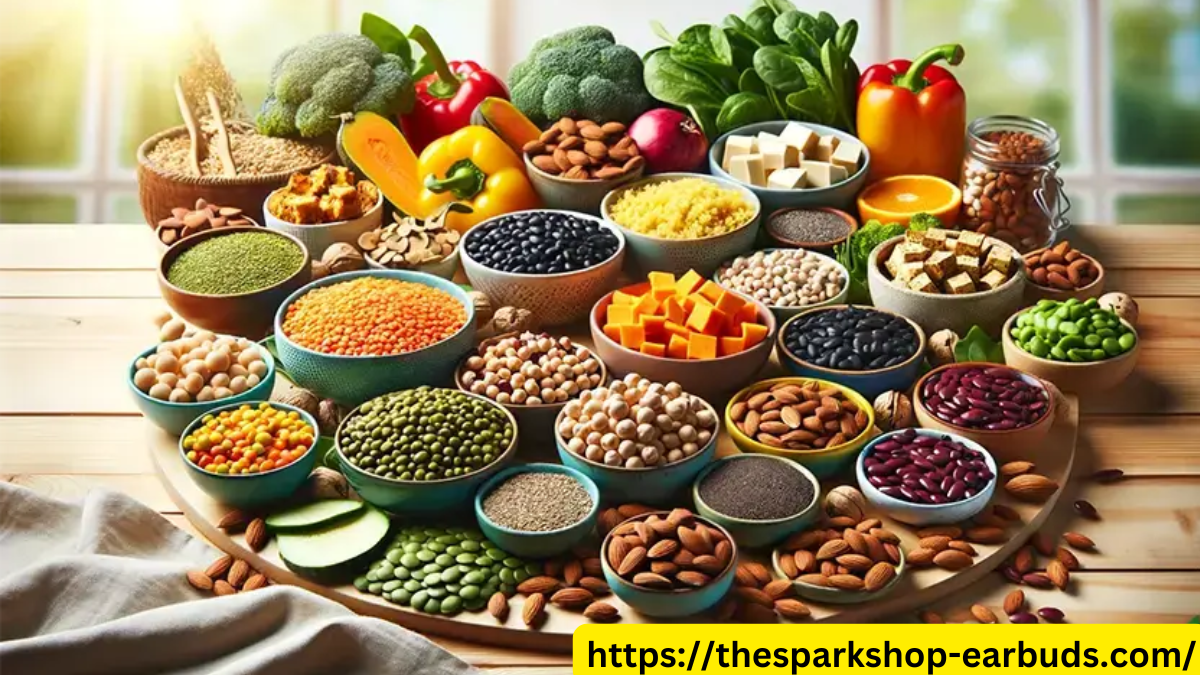Introduction
Protein is one of the most essential macronutrients required by the body for various functions. It is vital for growth, tissue repair, immune function, hormone production, and more. Despite its importance, there are still many people who are unaware of the full extent of protein’s benefits and how it plays a significant role in maintaining overall health and wellness. Wellhealthorganic.com delves into the significance of protein in a balanced diet, its sources, and how to ensure that you’re consuming enough of this vital nutrient. Whether you are looking to improve your physical performance, support weight loss, or simply maintain general well-being, understanding the role of protein in your diet is crucial.
What is Protein and Why is it Important?
Protein is made up of amino acids, which are the building blocks of the body. The body requires protein for growth, repair, and maintenance of tissues, as well as for the production of enzymes and hormones. In addition to its role in physical health, protein is also crucial for the proper functioning of the immune system, as it helps produce antibodies that protect the body from illness and infection.
The body cannot store protein the same way it stores fats and carbohydrates, which is why it is important to regularly consume protein through your diet. Wellhealthorganic.com protein Without an adequate supply of protein, the body may struggle to repair and build new tissues, leading to muscle loss, slower recovery from injuries, and even weakened immunity.
One of the most remarkable aspects of protein is its ability to support a variety of bodily functions. Protein helps to keep the skin, hair, and nails healthy, it plays a role in enzyme and hormone production, and it is also necessary for the proper function of organs such as the heart, kidneys, and liver. In short, protein is involved in nearly every biological process within the body.
Sources of Protein
There are two primary sources of protein: animal-based and plant-based. Animal-based proteins, such as those found in meat, poultry, fish, eggs, and dairy products, are considered complete proteins. This means they contain all nine essential amino acids that the body cannot produce on its own and must obtain from food. These complete proteins are often easier for the body to digest and absorb.
On the other hand, plant-based proteins, such as those found in beans, lentils, tofu, nuts, seeds, and whole grains, are often considered incomplete proteins. However, by consuming a variety of plant-based foods, it is possible to obtain all the essential amino acids your body needs. For individuals following a vegetarian or vegan diet, combining different plant-based protein sources ensures that they get the full spectrum of amino acids.
For example, eating a combination of rice and beans provides a complete protein profile, as rice is low in the amino acid lysine, while beans are rich in it. By pairing these two foods, you can ensure you are getting a balanced amino acid intake.
Protein’s Role in Fitness and Muscle Growth
One of the most popular uses of protein is its role in muscle building and fitness. Whether you are an athlete, a gym-goer, or someone who enjoys an active lifestyle, protein is essential for muscle repair and growth. During exercise, especially strength training, muscles experience microtears, which need to be repaired for muscle growth to occur. Protein is the key nutrient that helps repair these muscles, leading to stronger and larger muscle fibers.
In particular, whey protein has become a popular supplement for athletes due to its fast absorption rate and rich amino acid profile. Whey protein contains all nine essential amino acids and is rapidly digested by the body, making it an excellent post-workout protein source. It has been shown to help with muscle recovery, improve strength, and support overall performance.
While protein is important for muscle growth, it is also necessary for other fitness-related goals, such as weight loss. Protein helps promote satiety, making you feel fuller for longer, which can reduce overall calorie intake and prevent overeating. By increasing protein intake, individuals can support their weight loss journey without feeling hungry or deprived.
Protein and Weight Loss
Protein plays a vital role in supporting healthy weight management. As mentioned earlier, protein can help curb hunger and increase feelings of fullness, which makes it easier to stick to a calorie-controlled diet. Studies have shown that higher protein intake can reduce food cravings, help regulate appetite hormones, and improve fat loss.
One of the reasons protein is so beneficial for weight loss is that it has a high thermic effect. This means that your body uses more energy to digest, absorb, and metabolize protein compared to carbohydrates and fats. This increase in energy expenditure can lead to a higher metabolic rate, which helps burn more calories throughout the day.
Additionally, protein helps preserve lean muscle mass while promoting fat loss. When you reduce your caloric intake to lose weight, your body may break down muscle tissue for energy. Consuming sufficient protein helps protect your muscles from being broken down, ensuring that weight loss comes primarily from fat stores instead of muscle loss.
Protein and Skin Health
Another often overlooked benefit of protein is its positive impact on skin health. Protein, especially collagen, is essential for maintaining the elasticity and structure of the skin. Collagen is the most abundant protein in the body and plays a significant role in maintaining the strength and integrity of the skin. As we age, collagen production decreases, leading to the formation of wrinkles, fine lines, and sagging skin.
By consuming adequate protein, you can support the production of collagen, which helps maintain youthful, firm skin. Additionally, protein is involved in the repair of damaged skin and promotes faster wound healing. If you have acne or other skin conditions, protein can help repair the skin barrier and reduce inflammation, contributing to clearer and healthier skin.
How Much Protein Should You Consume?
The amount of protein you need depends on several factors, including your age, sex, activity level, and overall health. The general recommendation for protein intake is 0.8 grams of protein per kilogram of body weight per day for the average adult. However, individuals who are more physically active or are trying to build muscle may require more protein to support their fitness goals.
For athletes and those engaging in strength training or intense physical activity, protein intake may need to be increased to 1.2 to 2.0 grams per kilogram of body weight per day. This increase ensures that the body has enough protein to support muscle repair, recovery, and growth.
It’s important to note that the body can only absorb and utilize a certain amount of protein at a time, typically around 20-30 grams per meal. Spreading your protein intake throughout the day in multiple meals and snacks can help Wellhealthorganic.com protein optimize muscle repair and support overall health.
Conclusion
Protein is an essential nutrient that plays a critical role in various aspects of health and wellness. From muscle growth and repair to weight loss, skin health, and immune function, protein is a key component of a balanced diet. Whether you prefer animal-based or plant-based sources, ensuring you get enough protein each day is vital for maintaining optimal health.
Incorporating high-quality protein sources into your diet, such as lean meats, fish, eggs, beans, lentils, and nuts, can help you meet your daily protein needs and improve your overall health. For individuals seeking to build muscle or lose weight, protein becomes even more important, as it helps preserve muscle mass and supports fat loss.





